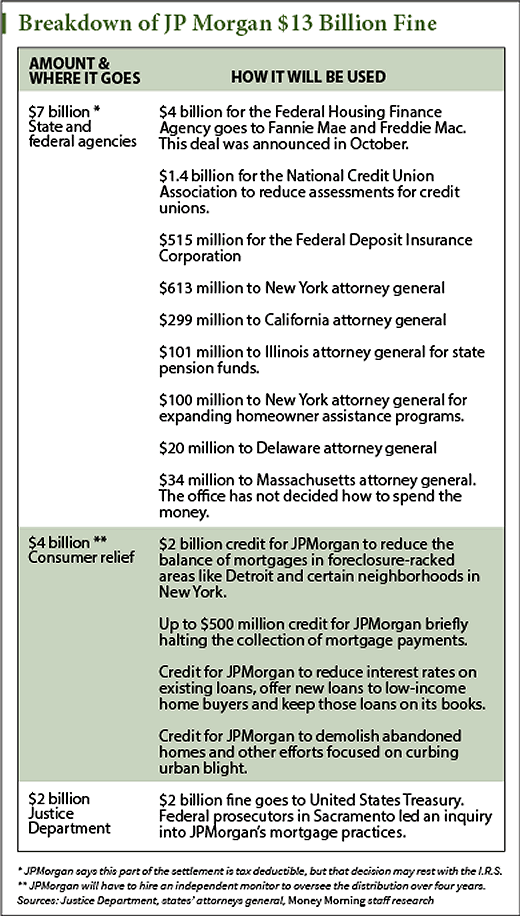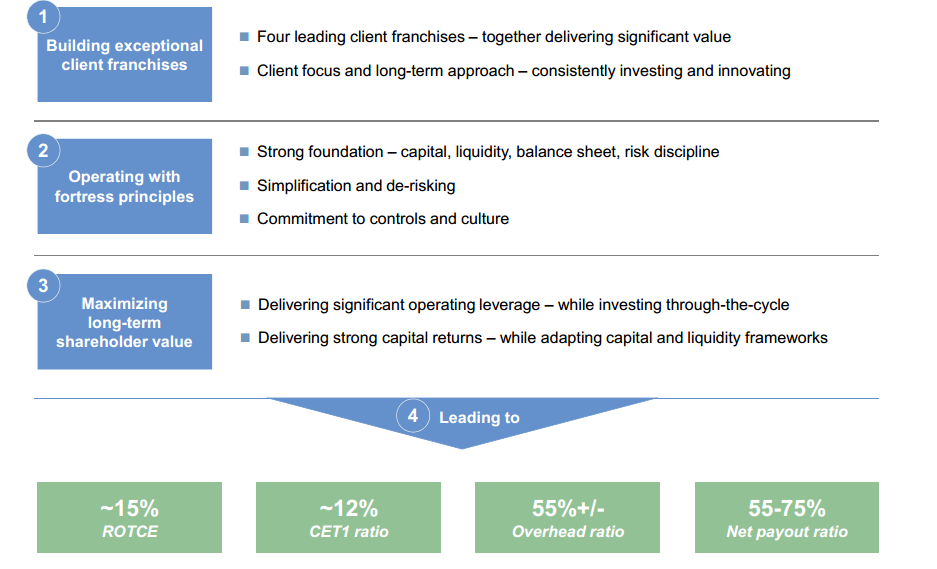Can JP Morgan Transparently Police Itself The Harvard Law School Forum on Corporate Governance and
Post on: 1 Июль, 2015 No Comment

Can JP Morgan Transparently Police Itself?
Editor’s Note: Ben W. Heineman, Jr. is a former GE senior vice president for law and public affairs and a senior fellow at Harvard University’s schools of law and government. This post is based on an article that appeared in the Harvard Business Review online.
In the wake of its significant trading losses (now reportedly rising from $2 to $3 billion or more), JP Morgan can win back some of its lost reputation by transparently holding those responsible to account.
These individuals could include (but not be limited to) the London trader, Bruno Iksil (The London Whale); his London boss, Achilles Macris; their U.S. boss, Ina Drew. the former head of the banks Chief Investment Office (CIO); and CEO Jamie Dimon, who oversaw the CIO. Drew quickly retired after the losses, and Iksil and Macris are, according to news reports, leaving the bank.
Although the media has spoken loosely about a company clawing back pay, there are, in fact, different ways to hold responsible individuals to financial account. A claw-back seeks cash or equity already transferred to an individual. A hold-back cancels financial benefits which have been awarded but have not yet vested. A future compensation action would reduce 2012 variable benefits (bonus or equity awards) in absolute terms (or through a much slower rate of increase). Claw-backs or hold-backs of past awards could be appropriate for the departed employees. They could be appropriate for Dimon, but so could a compensation action about future variable comp.
What makes this case of corporate accountability so important is that it is a discretionary matter of private ordering under JP Morgan risk management policies, not under a mandatory rule contained in Dodd-Frank . That legislative mandate imposes penalties, regardless of fault, for a defined set of senior leaders for one act (material non-compliance with respect to financial statements). Its purpose: to remedy unfair windfalls. By contrast, to discourage bad behavior and excessive risk-taking, many companies, including JP Morgan, now have more detailed compensation recovery policies (although those policies vary). These are built on deferring substantial elements of compensation to see the longer-term impact of corporate decisions, plus or minus, on economic performance and company reputation/integrity. They cover more employees under a number of standards; require fact-finding about degree of culpability and damage; dont specify a particular penalty; and leave the disposition of the case and the sanctions to the judgment of senior business leaders and/or the board of directors. (For a discussion of the importance of deferred compensation to sound risk management and the proper purpose, scope and implementation of discretionary corporate recovery policies see my 2010 piece here .)
JP Morgans decisions on accountability are also important because they go beyond the obvious causes of financial penalties in financial services firms — fraud, rogue trading and material misstatements. Instead, the problems here involve, at a minimum, outsized losses and material harm to reputation. Holding people to account for these and related issues is an essential element of a broad approach to risk management inside financial services (and industrial) firms. The rules governing recoveries for bad acts are set forth in this years JP Morgan proxy statement. They are worth quoting here (emphasis in the following excerpt is mine):
Equity awards vest over multiple years, with RSUs [Restricted Stock Units] vesting 50% after two years and 50% after three years and SARs [Stock Appreciation Rights] becoming exercisable 20% per year over five years. Awards are subject to the Firms right to cancel an unvested or unexercised award, and to require repayment of the value of certain shares distributed under awards already vested if :
the employee is terminated for cause or the Firm determines after termination that the employee could have been terminated for cause,
the employee engages in conduct that causes material financial or reputational harm to the Firm or its business activities ,
the Firm determines that the award was based on materially inaccurate performance metrics, whether or not the employee was responsible for the inaccuracy ,
the award was based on a material misrepresentation by the employee,
and for members of the Operating Committee [an elite subset of firms executive committee] and Tier 1 employees [senior employees with significant responsibility], such employees improperly or with gross negligence fail to identify, raise, or assess, in a timely manner and as reasonably expected, risks and/or concerns with respect to risks material to the Firm or its business activities .
For members of the Operating Committee, all SARs and half of RSUs granted in 2012 are subject to possible cancellation or deferral in scheduled vesting or exercisability in the event the CEO determines that the performance of the executive in relation to the priorities for such executives position, or the Firms performance in relation to the priorities for which the executive shares responsibility as a member of the Operating Committee, have been unsatisfactory for a sustained period of time. Such determination is subject to ratification by (and for an award to the CEO would be made by) the [Boards] Compensation & Management Development Committee.
There can be little doubt that the trading fiasco has harmed JP Morgan. Although the bank is likely to be profitable this year, the as-yet-to-be-determined losses materially reduce those profits (and some analysts predict the losses could be twice the $3B mentioned thus far). This is reflected in the drop in stock price from an April high of about $45 to about $35 in late May (a market cap decline of more than $35 billion). As a result of these problems, the bank recently canceled a $15 billion stock buy-back program. Moreover, the banks reputation has clearly taken a significant hit among investors and thoughtful analysts (even if we discount media hype and critics piling on) — and its public policy agenda opposing certain Dodd-Frank regulations has also been affected.

It also appears that the trading losses resulted not from the kind of mistake that business faces all the time when taking risk (no one bats 1000%), but instead from some form of fault: negligence, recklessness or intentional violation of JP Morgans own systems, processes and protocols. The best witness on this point is Jamie Dimon himself who, in the last two weeks, has said:
- the trading strategy was flawed, complex, poorly reviewed, poorly executed and poorly monitoredviolated our own principles.
- It puts egg on our face, and we deserve any criticism we get.
- We know we were sloppy. We know we were stupid. We know there was bad judgment.
What makes the gamey trading of the Chief Investment Office so remarkable is that the unit is described by Morgan as one of the bulwarks in its risk management structure — responsible for managing the firms liquidity, interest rate and foreign exchange risks, and other structural risks (per the Proxy Statement). Risk for one part of the bank might not be appropriate for another part of the bank. Some news stories say Dimon generally approved the specific strategy at issue here and perhaps the broader risk-taking by this risk management office (beyond more cautious hedging of risk). It was this office which reportedly produced more than $5 billion in profits in the last three years, or more than 10% of the banks $48 billion in cumulative profits. Ina Drew was in the banks High Five in the proxy statement, with more than $15 million in total comp in 2010 and 2011 (cash, bonus, stock awards). Of course, we dont yet know the details of the strategies or the particular decisions, but there is certainly plenty of smoke and a likelihood of serious fault (per Dimons own assessment) both in decision-making and in oversight.
JP Morgan may be forced to explain in the near future what happened and provide more detail about personal responsibility and accountability. Dimon is scheduled to testify before the Senate Banking Committee in early June. Morgan is doubtless negotiating a retirement package with Ina Drew and, given the prominent position she held and her presence in the High Five, that package, including any claw-backs or hold-backs, may have to be disclosed due to regulator pressure. The same may be true of the London trader and his supervisor. Vague statements or press releases may accompany these events, rather than clear analysis.
But, rather than succumbing to pressure or avoiding it altogether, it would be far better for the bank if it takes this occasion to detail the specific failures of risk management under its own standards and to set a high bar for transparent accountability of responsible parties. It should reveal who is investigating, what was found, which of its standards were violated, what were the considerations relating to financial penalties, who made the ultimate decision and why. Said Dimon at the end of the banks annual meeting: We will do the right thingthat may include clawbacks. And looming over that statement are the company policies set out in the Proxy Statement: Disciplined risk management, compensation recovery and compensation recovery policies should be robust enough to deter excessive risk taking[including] actions causing financial or reputational harm to the Firm or its businesses.
One of Dimons arguments against too much financial regulation is that responsible financial institutions can govern themselves capably. Without getting into the whether this event buttresses the case for regulation, it surely presents JP Morgan the opportunity for responsible and clearly-disclosed private ordering in the service of advancing sound risk management through imposition of high standards of accountability.
Now, more than ever, banks like J.P. Morgan need to show the public and regulators that they can in fact regulate themselves and in turn discourage both obvious financial crimes such as fraud along with reckless risk taking. Now is the time for banks to show that they do not need additional oversight. The ball is in your court, Mr. Dimon.














